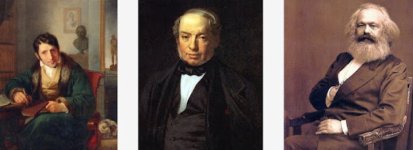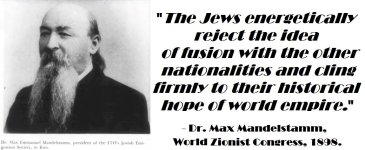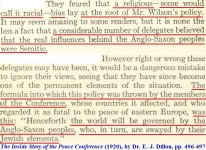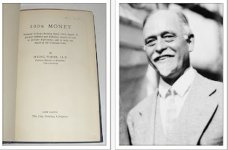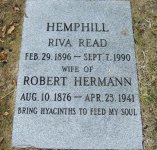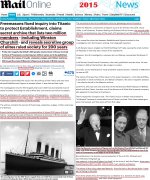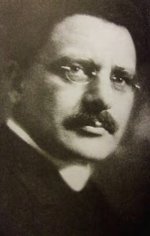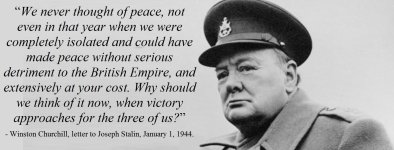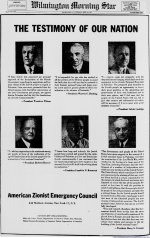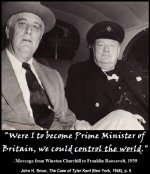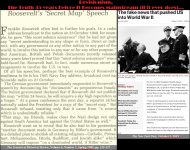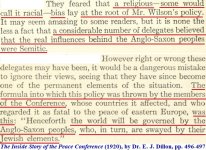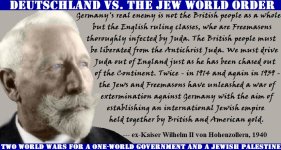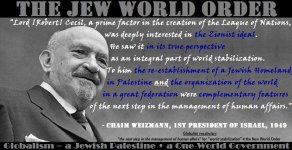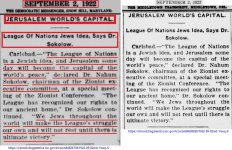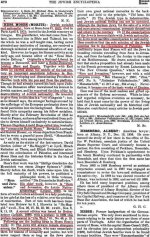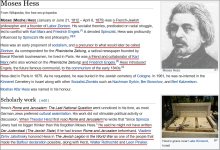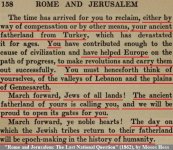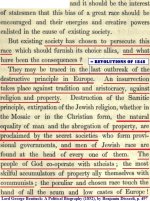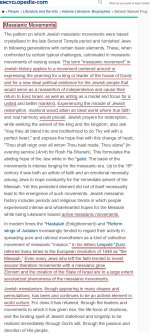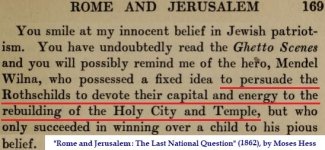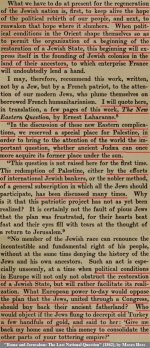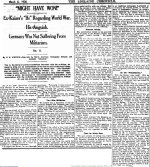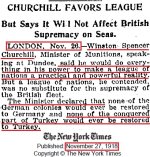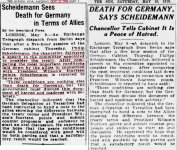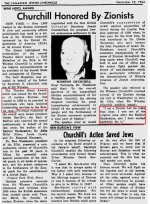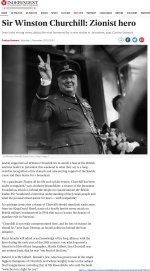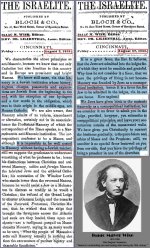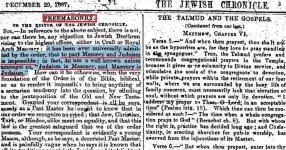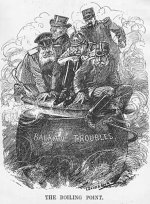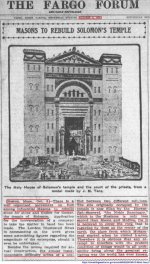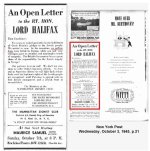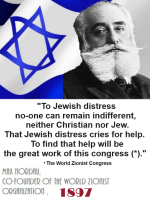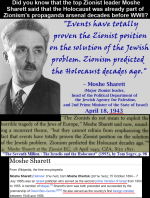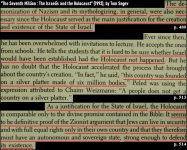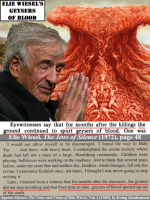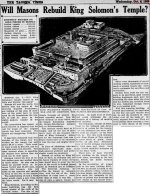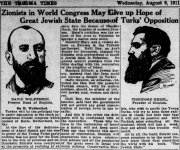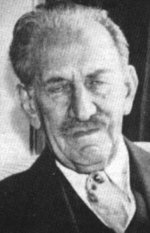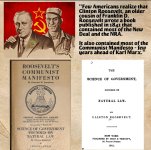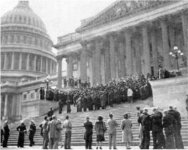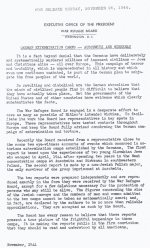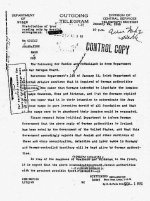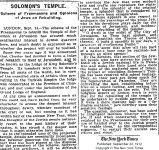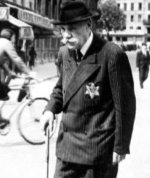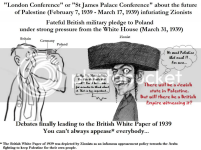 WW2: Jews in the Ustasha leadership
WW2: Jews in the Ustasha leadership
On 12 August 1922, the leader of the Ustasha movement Ante Pavelic married Maria Lovrenčević.
Maria was part
Jewish through her mother's family and her father, Martin Lovrenčević, was a member of the Party of Rights and a well-known journalist.
The Party of Right was doomed to remain on the fringe of Croatian national politics within the Empire. But it was an attractive ideology when it was discovered by a young lawyer from Bradina, a small village in present-day Bosnia-Hercegovina, named Ante Pavelic. Ante Pavelic rose through the ranks of the Party of Right after the incorporation of Croatia into the Kingdom of Serbs, Croats and Slovenes, later to be renamed Yugoslavia. He led the far right-wing of what was already a right-wing party - the "Frankist" faction, so named after Josip Frank, a singularly intolerant man despite his ethnic background as an assimilated Jew.
Josip (Joseph) Frank:
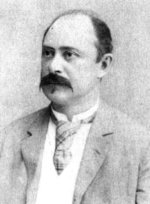
Frank was born into a Croatian Jewish family,[1] and he attended the gymnasium in Osijek. After having finished his law studies at the Vienna University in 1872, he moved to Zagreb and worked as an attorney at law.
From the beginning, Pavelic had quite naturally adopted Frank's ideology for his own movement.
Ante Pavelic's wife, Mara Lovrencic, came from a family of assimilated Viennese Jews, and his chief aide in exile, Dido Kvaternik, was related to Josip Frank.
Slavko Kvaternik - Dido Kvaternik's father and the elder statesman of the Ustase movement - declared the Independent State of Croatia in the name of the poglavnik (a Croatian equivalent of duce or fuehrer) Ante Pavelic.
Slavko Kvaternik married Olga Frank, the daughter of Josip (Joshua) Frank. Slavko Kvaternik's son, Col. Dido (Eugen) Kvaternik, Ustasa commissioner for Public Order and Security was, according to both German and Judaic law, a Jew. Therefore, not only was the wife of Ante Pavelic, the Chief-of-State, Jewish, but the wife of the vice-president and Chief of the Armed Forces, police forces, and gendarmes was also a Jew.
Other prominent Jews in the Ustasha leadership included the Ustasha Representative to Hungary Alexander Klein, Vlado (Vladimir) Singer of the Ustasha Police, and Pavelic's personal physician. In addition to the families of Dr. Pavelic and Marshal Kvaternik, the wife of Minister Milovan Zanicwas also a Jew.
A Jewish lawyer, Hinko Hinkovic, was amongst the ideological and political leaders of Croatian nationalism and Vlado Singer, a Jewish intellectual, worked for Pavelic's election to parliament in 1927.
Some of the Jews in the Ustasha movement:
General Milan Miesler (the Croatian Gendarmerie (Hrvatsko Oruznistvo) was formed on April 30th 1941, as a rural police, commanded first by MajorGeneral Milan Miesler);
General Milan Praunsperger (19411943 Head Judge Advocate General’s Office of the Home Defence Army 1943 - 1945 Head Military Archives);
General Oskar Kirchbaum; General Josip Šulc; General Ferdinand Halke; One of the Ustasha movement most renowned writers in the second
emigration, an Ustasa from the first emigration, Dr. Ivo Korsky - was also a Jew.
Ivo Korsky:
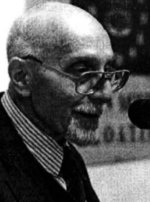 The Ustashe's "Honorary Aryans"
The Ustashe's "Honorary Aryans"
Even more interesting was the fact that the S.S. Intelligence service had discovered that nearly all members of the ruling clique in Croatia, from the
head of government to the leader of the Ustashe, were married to Jewish women. The fifteen hundred survivors among the Jews in this area were clearly all members of this highly assimilated, and extraordinarily rich, Jewish group.
In the initial anti-Jewish legislation, the Germans had noted a curious paragraph that transformed into 'honorary Aryans' all Jews who made contributions to 'the Croat cause.' Hundreds of other Jewish leaders and officials were made "honorary Aryans," a practice that the Germans looked upon as quite serious. W. H. Allen, in his book, The Destruction of the European Jews, noted that: (German Police Attache SSObersturmbannfuehrer) "Helm added that the problem of honorary Aryans was admittedly unsolved; some of them were still holding office." Helm remarked that quite a few Croat leaders had strong family ties with Jews and that "some cabinet members had Jewish wives."(16)
Jews and the racial laws
"Like all areas occupied by the Germans, the Gestapo and SD units of the SS were active in Croatia. The heavy toll of Jews, as well as Croatian Catholics and Moslems, was surely taken. Although the Croatian government posted the racial laws required of them by Germans, Jews were on many occasions assisted by the Croatian people and Croatian laws. One such law redefined the German racial laws in such a way as to allow hundreds of Jews and children of mixed marriages to escape the Nazis. Another law granted full citizenship to those who had excelled in their "service to the Croatian State." (15)
Facts:
i. The Ustasha were often known as 'Francovi' or 'Frankists' due to the dominance in their political evolution of Dr. Isaiah Frank, a Jew. He became leader of The Party of Right (Law) in 1896, following the death of Starcevic. Dr. Frank became a Catholic, taking the baptismal name of Josip ((EJ 16:917)). Frank was greatly admired and honoured by the Ustasha.
ii. A Jewish lawyer, Hinko Hinkovic, was amongst the ideological and political leaders of Croatian nationalism ((EJ 16:
917)) and Vlado Singer, a Jewish intellectual, worked for Pavelic's election to parliament in 1927 ((MTA 125)).
iii. The Ustasha was not greatly interested in the Jews prior to the outbreak of the war ((SSJ 19: 22)). Their hatred was centred on the Serbs.
iv. Pavelic (as Chief of State) and Milovan Zanic (as President of the Legislative Committee) jointly signed the 1941 decrees concerning Jewish and Serbian property ((RL 606-627)). Yet both had Jewish wives ((MR 69)). According to Nazi ideology, the lives of these wives and their 'mischling' children were under threat.
v. Slavko Kvaternik who proclaimed Croatian independence on 10th April 1941, and became Commander of the Armed Forces and Pavelic's deputy, also had a Jewish wife ((IO 21-22)).
vi. Eugen (Dido) Kvaternik was appointed Director of Public Security.
Being the son of Slavko he was therefore half Jewish.
vii. Jews were still holding official positions in Croatia, including senior ones within the Ustasha command, as late as 1944 ((RH 457)).
--------------------------------------------
---------------
The fact that their hatred was centred on the Serbs was even confirmed by the Germans:
As early as July 10, 1941, Wehrmacht General Edmund Glaise von Horstenau reported the following to the German High Command, the Oberkommando der Wehrmacht (OKW):
“ Our troops have to be mute witnesses of such events; it does not reflect well on their otherwise high reputation... I am frequently told that German occupation troops would finally have to intervene against Ustaše crimes. This may happen eventually. Right now, with the available forces, I could not ask for such action. Ad hoc intervention in individual cases could make the German Army look responsible for countless crimes which it could not prevent in the past. ”
A Gestapo report to Reichsführer SS Heinrich Himmler, dated February 17, 1942, stated that:
“ Increased activity of the bands [of rebels] is chiefly due to atrocities carried out by Ustaše units in Croatia against the Orthodox population. The Ustaše committed their deeds in a bestial manner not only against males of conscript age, but especially against helpless old people, women and children. The number of the Orthodox that the Croats have massacred and
sadistically tortured to death is about three hundred thousand. ”
During World War II, various German military commanders gave different figures for the number of Serbs killed in NDH - They circulated figures of 400,000 Serbs (Alexander Lehr); 350,000 Serbs (Lothar Rendulic); between 300,000 (Edmund Glaise von Horstenau); more than "3/4 of a million Serbs" (Hermann Neubacher) in 1943; 600-700,000 until March 1944 (Ernst Fick); 700,000 (Massenbach).
The exact number of Serbs killed in the NDH is unknown because, after the war, the Communists (led by Josip Broz Tito - Croat) destroyed evidences of Ustasha crimes. They (Communists) were doing that because it was supposed to create a Yugoslavia in which all nations should be the same.
Hermann Neubacher stated:
The recipe, received by the Ustaše leader and Poglavnik, the president of the Independent State of Croatia, Ante Pavelić, resembled genocidal intentions from some of the bloodiest religious wars: "A third must become Catholic, a third must leave the country, and a third must die!" This last point of the Ustaše's program was accomplished. When prominent Ustaše leaders claimed that they slaughtered a million Serbs (including babies, children, women and old men), that is, in my opinion, a boastful exaggeration. On the basis of the reports submitted to me, I believe that the number of defenseless victims slaughtered to be three-quarters of a million.
Also, Italian soldiers, who were overwhelmed and disgusted by the atrocious slaughter, reported similar figures to their commanders.
Even the Vatican's sources also speak of similar figures, that is, for an example, of 350,000 ethnic-Serbs slaughtered by the end of 1942 [Eugen Tisserant 124]
Even worse, for achieving their goals they have collaborated with the Bosnian Muslims. The NDH propaganda described the Muslims of Bosnia as the “Croatian flowers and the purest Croatians”. The first vicepresident in the NDH was Osman Kulenovic (muslim) later it was his brother Dzafer Kulenovic (muslim). 3 more Muslims were ministers in the NDH, Hilmija Beslagic, Mehmed Mehicic and Mehmed Alajbegovic.
Ante Pavelic hand-in-hand with Ali Aganovic, right, the envoy of the Bosnian Muslim community of Sarajevo at the opening of the mosque in Zagreb, August, 1944, which Pavelic and the NDH Ustasha regime constructed.
Ante Pavelic built one of the largest mosques in Europe